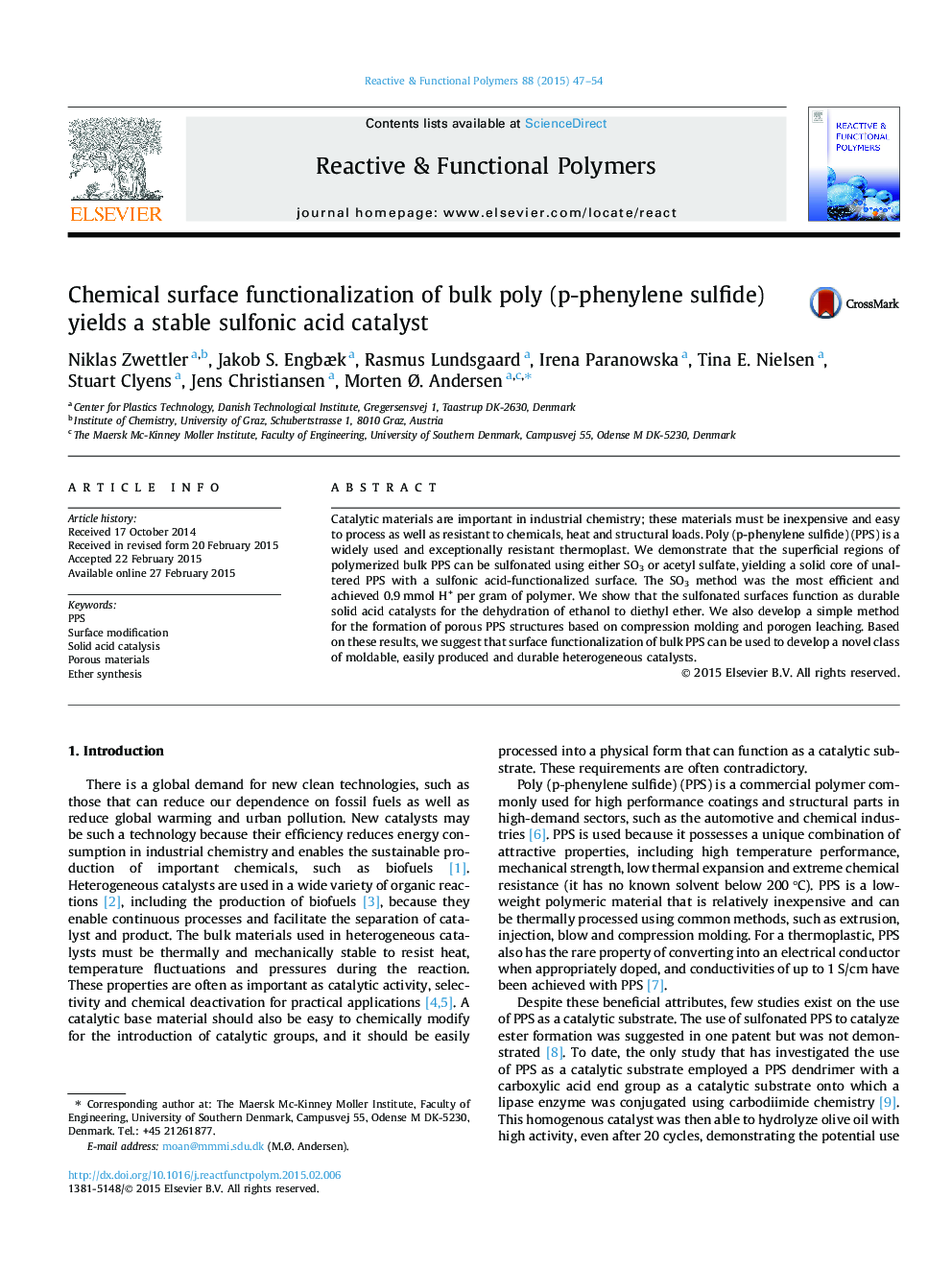| Article ID | Journal | Published Year | Pages | File Type |
|---|---|---|---|---|
| 5209765 | Reactive and Functional Polymers | 2015 | 8 Pages |
Abstract
Catalytic materials are important in industrial chemistry; these materials must be inexpensive and easy to process as well as resistant to chemicals, heat and structural loads. Poly (p-phenylene sulfide) (PPS) is a widely used and exceptionally resistant thermoplast. We demonstrate that the superficial regions of polymerized bulk PPS can be sulfonated using either SO3 or acetyl sulfate, yielding a solid core of unaltered PPS with a sulfonic acid-functionalized surface. The SO3 method was the most efficient and achieved 0.9Â mmol H+ per gram of polymer. We show that the sulfonated surfaces function as durable solid acid catalysts for the dehydration of ethanol to diethyl ether. We also develop a simple method for the formation of porous PPS structures based on compression molding and porogen leaching. Based on these results, we suggest that surface functionalization of bulk PPS can be used to develop a novel class of moldable, easily produced and durable heterogeneous catalysts.
Related Topics
Physical Sciences and Engineering
Chemistry
Organic Chemistry
Authors
Niklas Zwettler, Jakob S. Engbæk, Rasmus Lundsgaard, Irena Paranowska, Tina E. Nielsen, Stuart Clyens, Jens Christiansen, Morten Ã. Andersen,
